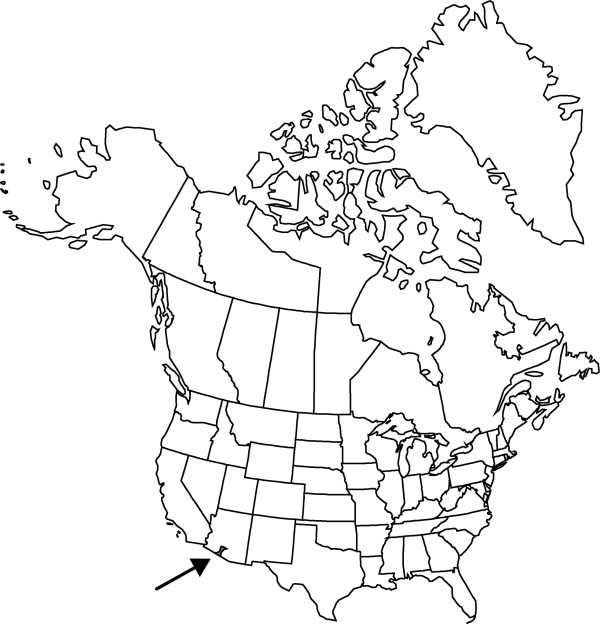Echinocereus nicholii
Phytologia 63: 157. 1987.
Plants 16–30-branched, forming clumps. Stems erect to ascending, cylindric or somewhat tapering distally, 20–30 (–70) × (4–) 6–9 cm; ribs 10–13, crests slightly undulate; areoles 15–25 mm apart. Spines 13–16 per areole, usually straight, divergent-porrect, pale translucent yellow; radial spines 8–12 per areole, 5–25 mm; central spines 4–6 (–8) per areole, 30–72 mm, abaxial central spine usually descending, paler than other central spines, often fading whitish, somewhat flattened. Flowers 4–6 × 5–7 cm; flower tube 18–25 × 12–30 mm; flower tube hairs 1 mm; inner tepals usually pale-pink with midstripes slightly darker, proximal 1/3 greenish, 30–40 × 5–10 mm, tips relatively thin and delicate; anthers yellow; nectar chamber to 7 mm. Fruits green, becoming bronze where exposed to sun, 23–34 mm, pulp white. 2n = 22.
Phenology: Flowering Mar–Apr; fruiting Jun.
Habitat: Arizona Upland Subdivision of Sonoran Desert, exposed slopes, bajadas, hills, mountains, desert scrub, igneous and sedimentary substrates
Elevation: 300-900 m
Distribution

Ariz., Mexico (Sonora)
Discussion
Although it was initially considered a variety of Echinocereus engelmannii, E. nicholii differs in chromosome number and a suite of morphologic characteristics. With its non-erumpent flower buds, diploid chromosome number, relatively small and usually pale flowers, green fruits, and exclusively yellow spines, E. nicholii more closely resembles E. ledingii than E. engelmannii.
Selected References
None.
Lower Taxa
"thin" is not a number.